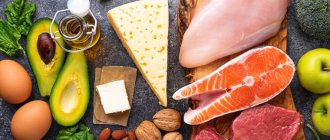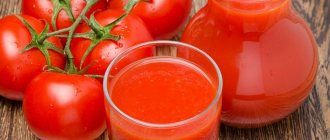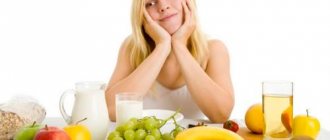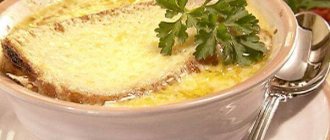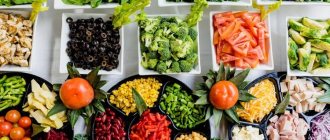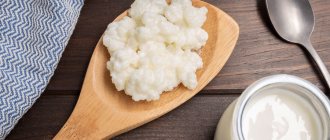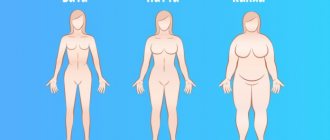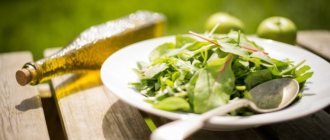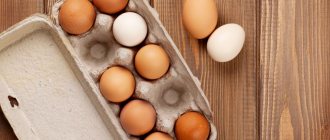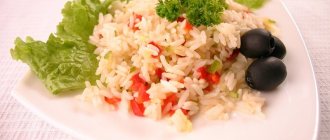General concept of urolithiasis
Urolithiasis of the kidneys is a pathology characterized by the formation of stones as a result of improper metabolism.
First, sand appears in the organs of the urinary system, then it turns into stones. The disease can appear in people of any gender and age.
Causes
Most often, kidney stones appear due to a congenital predisposition. Other causes of the disease:
- unbalanced diet;
- disturbed water and salt balance in the body;
- low quality of the liquid consumed (with the presence of chemical impurities);
- vitamin deficiency (group B, A);
- harmful working conditions;
- disruption of urine outflow (as a result of surgery, pregnancy);
- taking certain medications;
- lack of enzymes that are responsible for metabolism;
- sedentary lifestyle and bad habits.
Kidney stones appear due to poor quality fluid intake.
Symptoms
Due to the movement of the stone along the urinary tract, there is a sharp pain in the lower back and the urge to go to the toilet.
The disease is accompanied by nausea, vomiting, dizziness, and excessive salivation. The urine may change color, becoming darker or brown. The pain intensifies after physical activity or changing body position. When the stone moves along the lower parts of the ureter, discomfort occurs in the lower abdomen and groin area. The presence of symptoms is a reason to consult a urologist.
A small stone can pass out on its own in the urine, but removing a large stone requires medical intervention.
Principles and general rules of diet therapy for urolithiasis
The diet should be balanced. It is necessary to avoid vitamin deficiency, and it is important not to burden the kidneys. Food is taken 4-5 times a day in small portions (no more than 400 g). Dishes are steamed or stewed without adding salt or hot spices.
Chemical composition of the diet
In terms of calorie content and BJU ratio, the diet does not differ from physiological norms.
Chemical composition of “table number 14”:
- carbohydrates - 300-400 g;
- fats - 100 g;
- proteins - 90 g.
Products need to be steamed.
The recommended calorie intake is 2800. But the figure may vary depending on gender, body mass index, and the patient’s activity.
Basic rules of diet for kidney stones
The goals of the diet for urolithiasis are:
- normalization of nutrient metabolism, in particular purines;
- shifting the urine reaction to the alkaline or acidic side depending on the composition of the stones to prevent the deposition of salts and remove them from the body;
- correction of intestinal function and normalization of weight.
The diet is physiologically complete with some limitation of animal protein and refractory fats.
According to Pevzner’s classification, the diet for kidney stones corresponds to treatment table No. 6. According to the order of the Ministry of Health of the Russian Federation, in medical institutions, table No. 6 is included in the main version of the diet (OVD).
Daily nutrient content:
- proteins – 70-80g, of which 50% are animal proteins;
- fats - 80-90g, of which up to 30% vegetable fats;
- carbohydrates – 350-400g, sugar – no more than 80g.
The energy value of the diet is 2170-2400 kilocalories per day.
Diet for kidney stones. Basic principles:
- diet; You need to eat food up to 4-5 times a day in small portions, this reduces the load on the digestive tract, normalizes intestinal motility and weight (especially in obesity). Both overeating and fasting are not allowed, since in such cases the level of uric acid and other substances that provoke the formation of stones increases. The last meal should be no later than three hours before bedtime.
- culinary processing; All types of culinary processing of products are allowed, except frying. Meat, fish and poultry products are first boiled before cooking, since about half of their purines go into the broth (extractives). The food is chopped, but not too finely, or served in one piece (meat - no more than 150g, fish - no more than 170g). Meat and fish are introduced into the diet no more than 2-3 times a week.
- food temperature; The food temperature is normal: 15-60 degrees Celsius.
- salt and liquid; If you have kidney stones, you should limit your salt intake to 5g per day. Excess salt provokes the formation of stones and increases blood pressure. Unless there are other reasons to limit fluid intake, its volume should be at least 2 liters per day. We recommend boiled water, low-mineralized water, vegetable and fruit juices, and decoctions of medicinal herbs. Drinking large amounts of fluid reduces the concentration of urine and removes salts from the body.
- alcohol; Drinking alcoholic beverages if you have kidney stones is prohibited. Firstly, strong alcoholic drinks provoke spasm of the ureters, stagnation of urine in the kidneys and a painful attack. Secondly, ethyl alcohol increases the concentration of urine and the precipitation of salts.
- weight; An equally important principle of the diet for kidney stones is weight normalization. With excess everything and increased consumption of high-calorie foods (simple carbohydrates and animal fats), the level of uric acid in the blood increases, which is deposited in the kidneys. It is recommended to have fasting days (cottage cheese, kefir) once a week.
Prohibited and permitted products
What can be included in a patient’s diet:
- bakery products, flour and confectionery dishes;
- soups with secondary broth;
- meat and fish;
- sour cream as a dressing for dishes;
- no more than 1 egg per day;
- cereals;
- vegetables - green peas (not canned), pumpkin, others - in limited quantities;
- mushrooms;
- sour apples;
- lingonberries, cranberries.
Bakery products can be included in the diet.
It is allowed to use olive oil and butter for cooking.
Prohibited on the diet:
- milk porridges, soups;
- smoked meats;
- canned food;
- pickles;
- dairy products;
- cheeses of any kind;
- sweet fruits;
- strong tea and coffee;
- spices in large quantities.
Depending on the chemical composition of the stones, the list may be adjusted.
Diet for phosphaturia
With phosphaturia, calcium-phosphorus stones form in alkaline urine. Given these circumstances, it is necessary to limit the consumption of vegetables and fruits, completely eliminate dairy products, which alkalize the urine, and increase the consumption of meat, fish, flour products and vegetable oils, which acidify the urine. When treating this type of kidney stone disease, diet No. 14 is recommended. The food and water regime should influence the oxidation of urine with a sufficient content of vitamins A, B, and D in the food. The diet consists of foods with a predominance of acid radicals and excludes nutrients with alkaline properties, limits calcium salts and involves the consumption of smaller amounts of liquid than with uric acid and oxalic acid diathesis, in order to cause shifts in the acid-base reserves of the body towards acidosis (in the acid direction) and reduce the phenomena of phosphaturia.
Allowed: weak tea without milk (with cream), all kinds of bread, egg dishes in very limited quantities (yolks are especially limited), butter, lard, vegetable oil (cottage cheese, cheese, yogurt are not allowed); soups with meat or fish broth; cereals, pasta, flour dishes; meat, fish, poultry in the form of a variety of dishes of conventional culinary preparation. Greens, vegetables and fruits are excluded from the diet, except for peas, beans, Brussels sprouts, and lingonberries. The consumption of various types of bread and bread products is allowed, except for butter. A predominantly meat table is prescribed, which promotes the oxidation of urine: meat, poultry, fish and lard, various dishes made from them, meat, mushroom and fish soups, flour, cereals and pasta, canned food (but not vegetables), caviar, butter, vegetable fats , sweet dishes, sugar and sweets in all forms, honey, infusion and juice of rose hips, lingonberries, bread kvass, wheat bran decoction.
Limit: consumption of eggs (no more than 1 per day), sour cream (up to 50 g per day), vegetables containing small amounts of calcium and alkaline radicals - Brussels sprouts, pumpkin, asparagus, peas; dishes and side dishes from legumes and mushrooms (no more than 100 g per day); sour berries and fruits - lingonberries, red currants, prunes, cherry plums, apples, nuts.
Prohibited: milk and dairy products (except for sour cream), egg yolk, baked goods made with milk, sweet dishes in the form of biscuits, cakes, vegetables, fruits, berries (except for the above), canned snack foods, smoked meats, mustard, pepper, horseradish. Substances and products that excite the nervous system and have a strong juice effect are excluded - alcoholic beverages, coffee, spices, strong tea, concentrated broths and infusions, pickles and smoked foods. These substances, irritating the gastrointestinal tract, cause acid-base imbalance and alkalinization of urine.
Vitamins are given in the form of rosehip infusion, wheat bran decoction, and lingonberry juice. Table salt is introduced into food in normal quantities.
Chemical composition: proteins - 120 g, fats - 100-110 g, carbohydrates - up to 600 g; calories - 4000.
The diet is general. Liquid 1.5-2 liters per day.
Sample menu
8-9 hours. Ham, rice porridge with meat broth, butter, bread, tea.
12-13 hours. Fried meat, pasta, bread, tea, wheat bran decoction.
16-17 hours. Oatmeal soup with meat broth with meatballs, fried cutlets, buckwheat porridge, cake, tea.
19-20 hours. Rice casserole, fried egg white omelette, lingonberry compote, tea.
22 hours. Tea, bun.
In addition to diet, urine acidification should also be achieved by taking acidifying juices: cabbage, apple and grape (in the absence of diabetes). Juices are taken 2-3 times a day 15-20 minutes before meals in a volume of 100-150 ml. In the case of existing gastritis with increased stomach acidity, sour juices can be taken during meals, towards the end of the meal, but not after meals. In the future, the dose of juice you take should be adjusted yourself, based on urine pH measurements and maintaining its acidity at the level of 6.2-6.6. Stronger acidification of urine can lead to loss of urate.
Increasing the solubility of phosphates - the phosphatolytic effect is achieved by taking a decoction of elecampane roots, snakeweed roots, and burdock roots. Decoctions are taken in a volume of 80-90 ml 5-10 minutes after meals 2-3 times a day. Medicinal plants that promote the removal of phosphates are largely the same as those used for oxalate diathesis. Therefore, for phosphate stones, charges No. 7 and No. 10 are applicable. In addition to them, charges of the following composition can be prescribed.
Collection No. 11
Juniper fruits - 1 part. Hernia herb - 1 part. Bearberry leaves - 1 part. Madder root - 4 parts.
Pour 1 tablespoon of the mixture into 0.3 liters of boiling water and cook for 15 minutes. Take 3 tablespoons of infusion 3 times a day 15-20 minutes before meals.
Collection No. 12
Madder root - 1 part. Wheatgrass rhizome - 2 parts. Sage leaves - 2 parts. Flaxseed - 4 parts.
Pour 4 tablespoons into 1 liter of boiling water, cook for 10 minutes, keep in a thermos. Take 1 glass warm 2-3 times a day with honey an hour before meals.
A few additions to special cleanings
Since the main goal of “special cleansing” of the kidneys is to achieve stable remission of kidney stone disease or its almost complete cure using the above measures, then with urate diathesis it is recommended to eat 2.0-2.5 kg of steamed pumpkin, apples, cucumbers, juices daily during the season strawberries, lingonberries, carrots (systematic consumption of grated carrots).
With oxalate and phosphate, the diet is supplemented with sour berry and fruit juices, apples, quinces, pears, and in season - grapes, apricots, and currants. It is especially recommended to prepare and systematically take an infusion of apple peels (5 tablespoons per 1 liter of water, leave for 1 hour, cook for 5-10 minutes, leave again for an hour, drink 2 glasses a day with sugar or honey instead of tea).
In case of phosphate (especially) and other types of diathesis, it is necessary to exclude the presence of chronic sluggish urinary tract infection. If an infection is detected, the herbal remedies listed in the previous section are prescribed, as well as fees No. 8 and No. 9. If the infection is persistent, synthetic antimicrobial drugs are prescribed as prescribed by a doctor.
Vitamin therapy for phosphaturia is carried out with the aim of saturating the body with vitamins: A, B1, C, PP and D. Apples (especially sour varieties), gooseberries, black and red currants, rose hips, cabbage, pumpkin, lingonberries and cranberries are very suitable for this.
Patients with phosphate stones, in addition to an acidifying diet, fighting infection and prescribing vitamins, are recommended to take mineral waters in small quantities (Naftusya, Truskavetskaya, Arzni). They are shown constant consumption of lingonberry juice, rosehip infusion and madder.
Drinking regime and healthy drinks
During the day you need to drink at least 1.5 liters of still water. It is allowed to consume fruit drinks, compotes, jelly made from fruits and berries with added sugar, and freshly squeezed juices from vegetables. You will have to completely eliminate store-bought products from your diet: carbonated water, alcohol. Drinking coffee is prohibited. You can replace it with green tea without sugar; you can drink it in unlimited quantities.
With ICD, it is allowed to use compotes.
After consultation with your doctor, it is recommended to use herbal teas in the menu: infusions of birch buds, horsetail decoctions. However, herbal medicine can cause allergic reactions.
Features of therapeutic nutrition
The list of permitted products varies depending on the type of kidney stones and concomitant diseases. The degree of damage to the urinary system also affects the choice of diet.
For urolithiasis
To improve the condition of urate formations, you need to eat in moderation, practice fasting days, but do not starve.
Other recommendations:
- The diet should consist of lean meat, vegetables, greens (except cauliflower, spinach and sorrel) and dairy products.
- You should avoid offal, soups with meat broths, legumes and mushrooms.
- Limit consumption of coffee, strong tea, bread and eggs.
- Fruits and berries are allowed in any quantity.
- To normalize the functioning of the urinary system, it is useful to eat cottage cheese, porridge with milk from buckwheat and oatmeal, and vegetable soups; drink green or herbal teas.
For urolithiasis, you need to take lean meat.
Urates will stop forming if you exclude foods that contain uric acid from your diet.
For oxalates
Fermented milk products help remove oxalic acid.
The menu is based on cereal porridges, chicken, turkey, lean fish and vegetables (potatoes, cabbage, pumpkin). All products must undergo heat treatment. The diet requires foods high in magnesium and potassium. The following are prohibited:
- red fruits, berries and vegetables;
- citrus;
- hot spices;
- fresh herbs;
- soups with fatty broths.
You can diversify your diet with dried fruits and herbal infusions. The consumption of products in which ascorbic acid acts as a preservative is limited.
Citrus fruits are prohibited.
With phosphates
A diet with this type of salts involves daily consumption of:
- porridge with water (preferably rice), lean meats and fish;
- vegetable soups in broth, you can eat pumpkin, asparagus, cabbage;
- fruits, dried fruits, compotes and jelly for dessert.
It is acceptable to include rye bread, bran, and mushrooms in the menu.
Chicken eggs, spicy vegetables (onions, garlic), and fermented milk products are prohibited. You should limit your consumption of summer berries and fruits - peaches, apricots, watermelons.
For struvite
Struvite is formed due to an infectious lesion of the urinary system (the proliferation of pathogenic bacteria in the kidneys). Patients should adhere to general dietary recommendations.
For other types of stones
Dietary recommendations for other formations:
- eat foods rich in vitamins A and B (carrots, pumpkin, broccoli);
- drink diuretics (herbal decoctions, green tea);
- Every day there are porridges and fruits that contain a small amount of acid.
You need to eat foods rich in vitamin A.
During the diet, you should avoid fatty foods, fast food, alcoholic and carbonated drinks. Consume salt and sugar in moderation.
For pyelonephritis with ICD
Pyelonephritis is accompanied by painful sensations and fever.
The diet should help get rid of symptoms and enrich the body with vitamins and beneficial microelements. To normalize kidney function, you need to reduce your protein intake. The amount of fats and carbohydrates must correspond to the physiological norm. It is recommended to exclude during illness:
- rich, fatty broths;
- legumes;
- mushrooms;
- canned foods, pickles;
- smoked meats;
- fried meat and fish;
- coffee, strong tea;
- sour cream with high fat content;
- hot spices, large amounts of salt;
- chocolate, cakes;
- alcohol.
It is recommended to exclude fatty broths.
In the acute stage of pyelonephritis, you should also avoid store-bought juices, melon, and watermelon. You should drink 1.5-2 liters of water per day.
Prevention
In order to prevent the formation of oxalate stones, you can use medical intervention with the help of medications, or by changing the composition of foods in your diet. A person chooses a more acceptable method for himself. The most accessible and useful way to prevent the formation of oxalate stones is comprehensive control of the products used in the diet.
First, foods must contain large amounts of calcium. Secondly, consume as little salt and carbohydrates as possible. Thirdly, products should not contain an increased percentage of oxalic acid salt. “Tap water can also have an impact on the formation of kidney stones. It is advisable to drink filtered and purified water. It is necessary to increase fluid intake to 2 liters per day, unless there are contraindications.
Main course recipes
On a diet you have to eat at home. To avoid boring dishes, you can cook according to new recipes.
Soups
It is recommended to eat liquid meals every day.
Vegetarian cabbage soup is one of the simple, hearty and healthy soup options. For preparation you will need:
- potatoes - 4 pcs.;
- white cabbage - 1 small fork;
- carrots - 1 pc.;
- onions - 0.5 pcs.;
- vegetable oil - 20-30 ml;
- bay leaf - 1 pc.;
- greenery.
Vegetarian cabbage soup is made from sauerkraut.
Finely chop the potatoes and cabbage and place in boiling and salted water. Fry onions and carrots in oil, add to vegetables. Throw a lava leaf into the pan. Before eating, chop the greens into a plate: onion, parsley, dill.
Salads
Salads will diversify the menu and replenish vitamin deficiencies.
In addition, a vegetable salad is an easy and nutritious snack. For preparation you need:
- bell pepper - 1 pc.;
- tomato - 1 pc.;
- cucumber - 1 pc.;
- spinach - 100 g;
- olive oil for dressing;
- salt, pepper to taste.
Vegetable salad is a light, dietary snack.
Grind all ingredients and mix with dressing. Prepare the salad before eating, otherwise the tomatoes will release juice and spoil the taste of the dish.
Porridge
Porridge can be boiled in water - this is a side dish for lunch or dinner.
Dairy products are better absorbed in the morning. Hercules porridge is a nutritious and healthy breakfast. To prepare 4 servings you need:
- 1 tbsp. oatmeal;
- 2.5 tbsp. milk;
- salt, sugar, butter - to taste.
Porridge is cooked in water.
Bring milk to a boil, add cereal. Cook for 10-15 minutes over low heat. Add sugar, salt. Before serving, place a piece of butter in a plate of porridge.
Sweets
You can cook sweets while on a diet.
Cottage cheese casserole with fruits or dried fruits will be a healthy breakfast or snack. To prepare it you will need:
- 250 g cottage cheese;
- 1 egg;
- 4 tbsp. l. flour;
- salt, sugar to taste;
- fruits or dried fruits to taste.
Cottage cheese casserole with fruit is a great dessert.
Cut the fruits into small cubes. Mix all ingredients and beat with a mixer or whisk for a more fluffy consistency. Place in an oven preheated to 150°C for 30-40 minutes. You can serve the dish with condensed milk or homemade jam.
